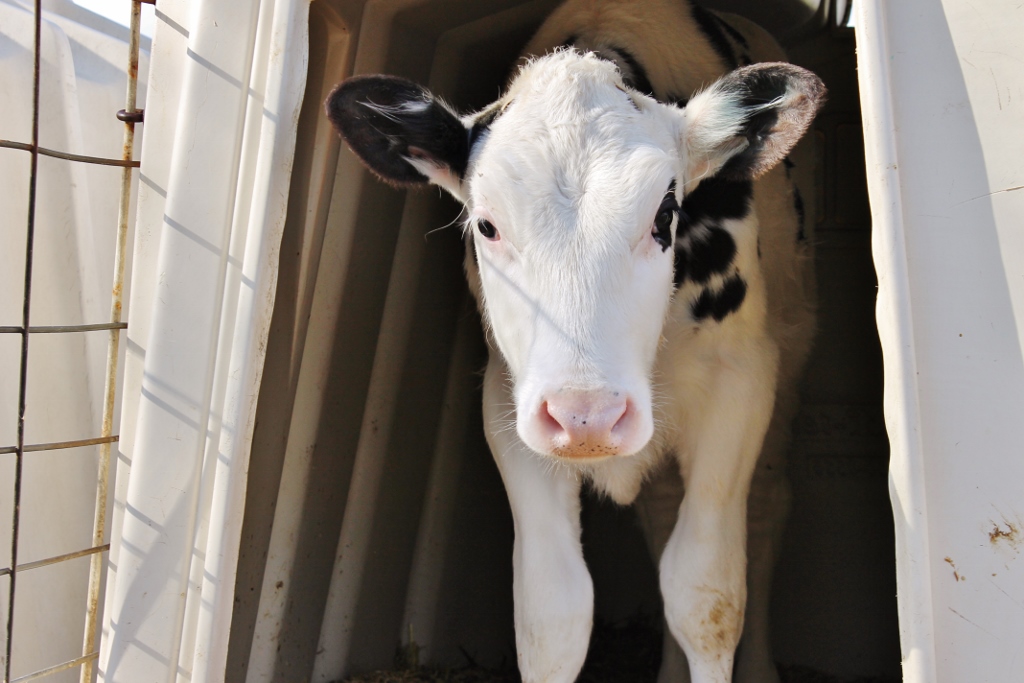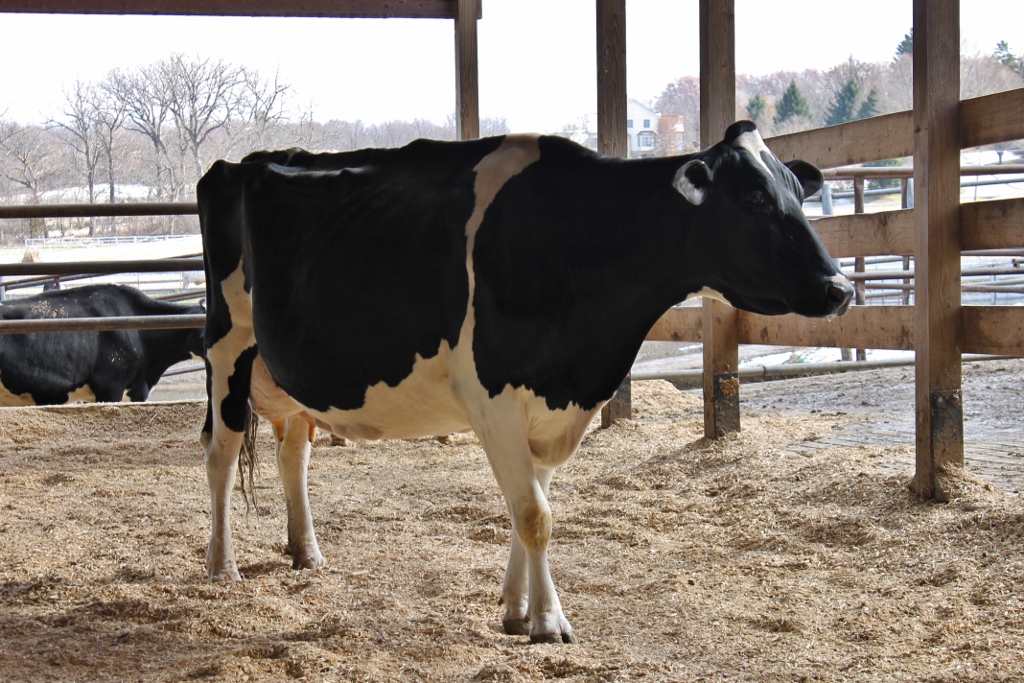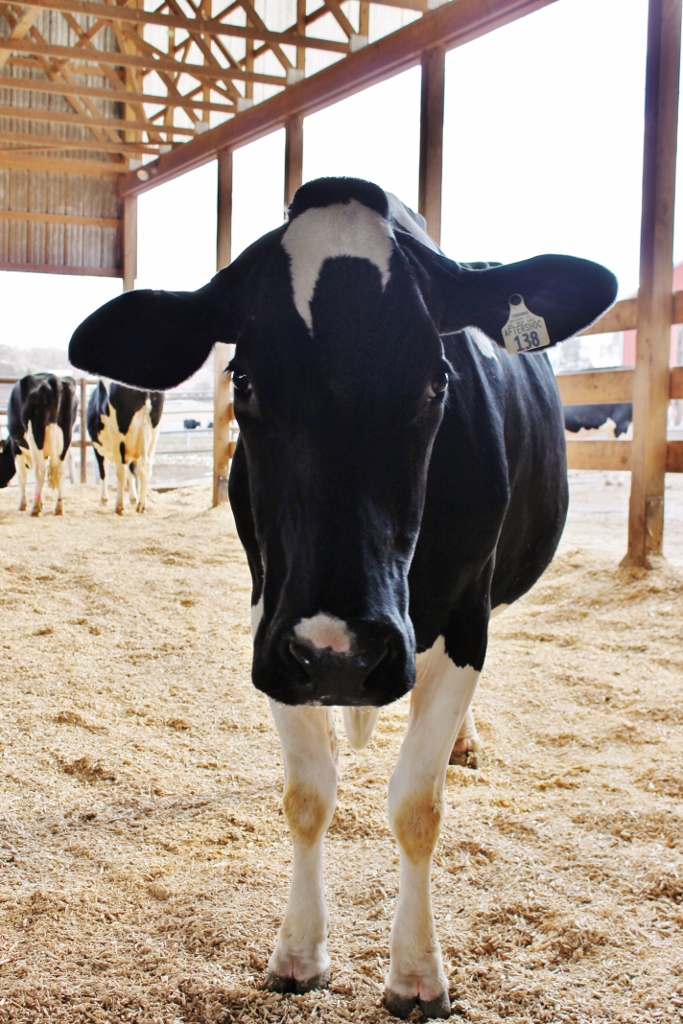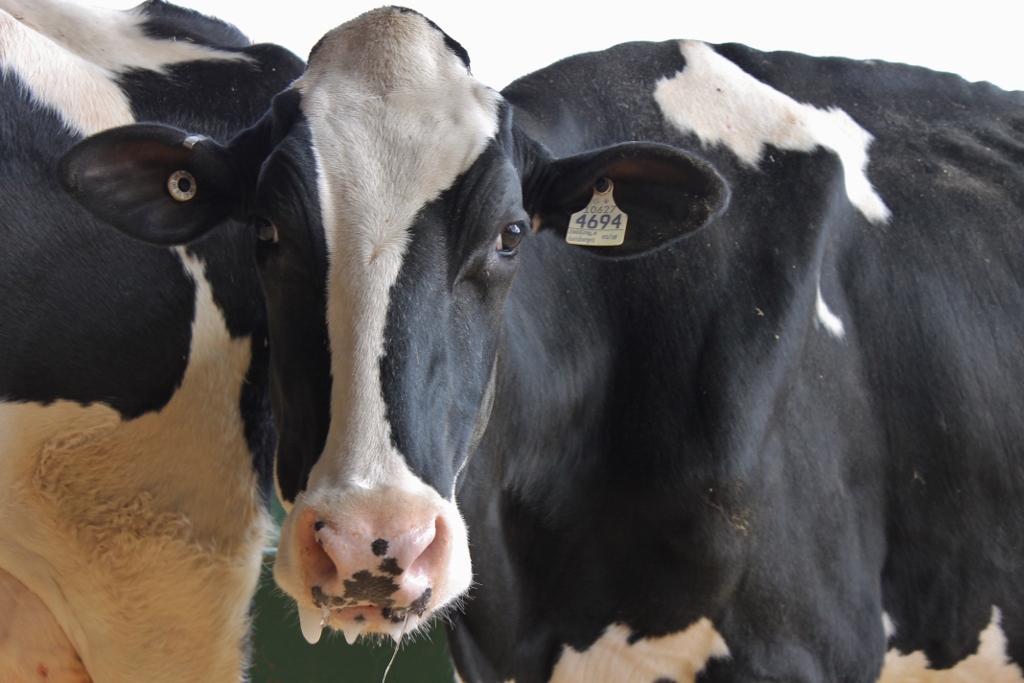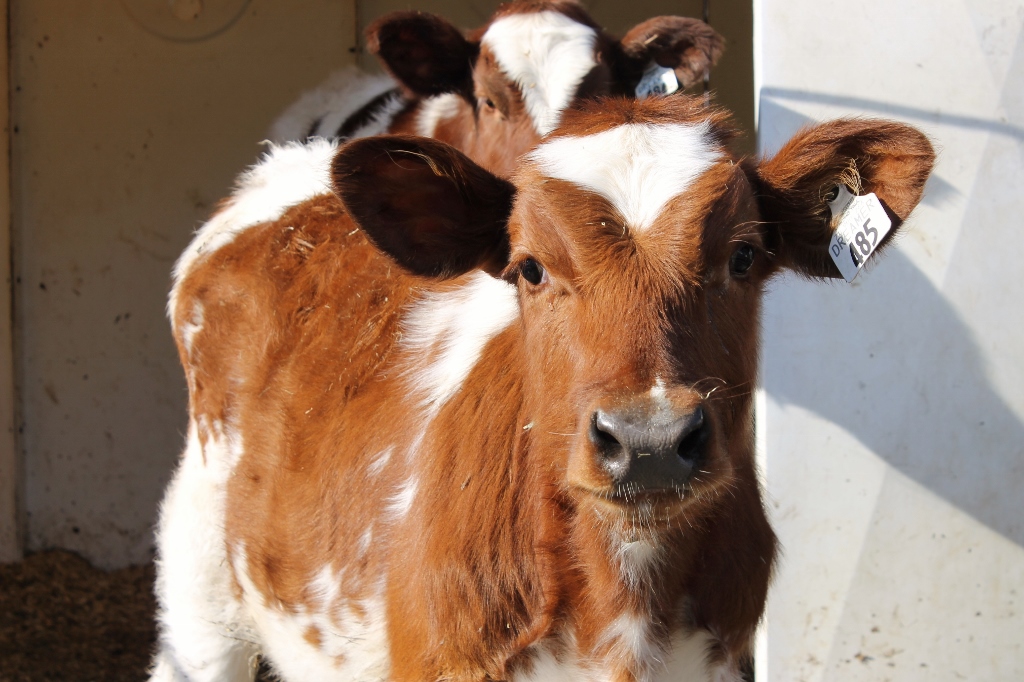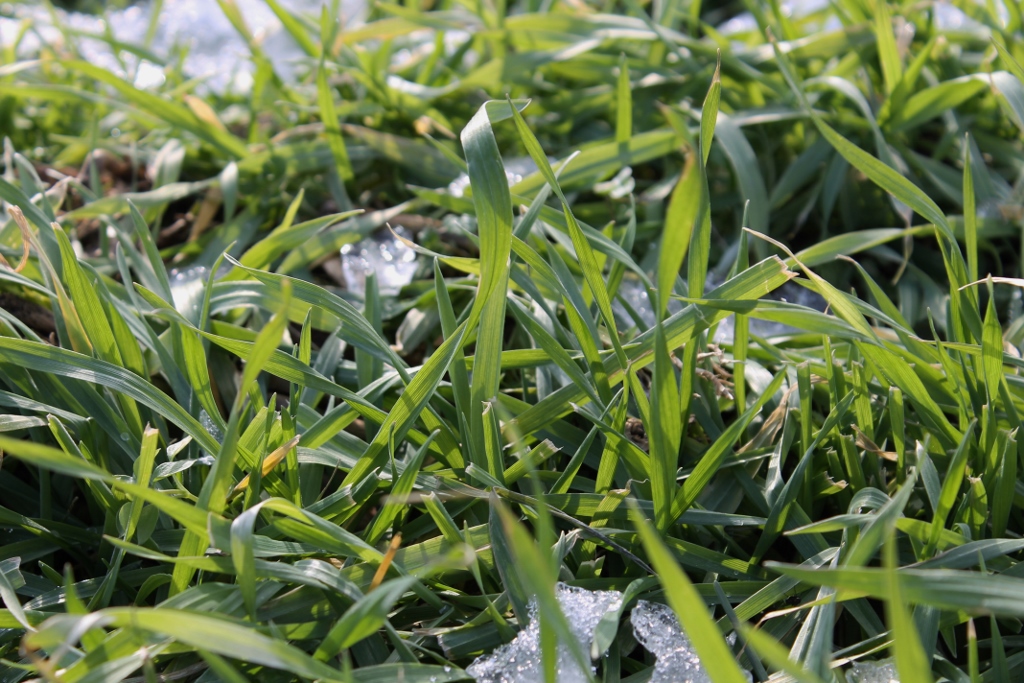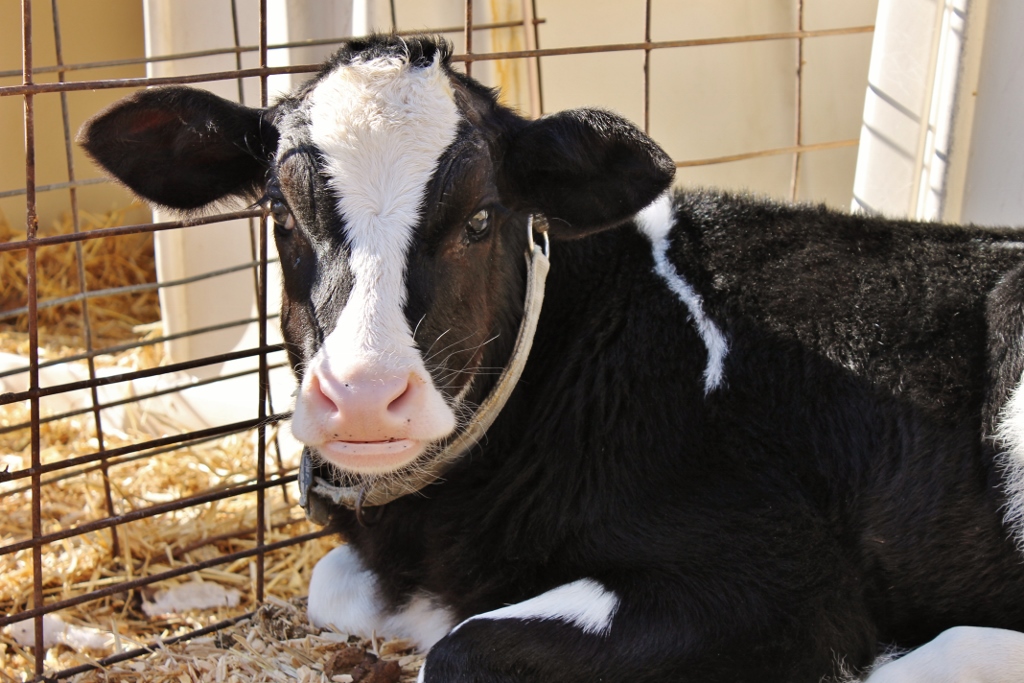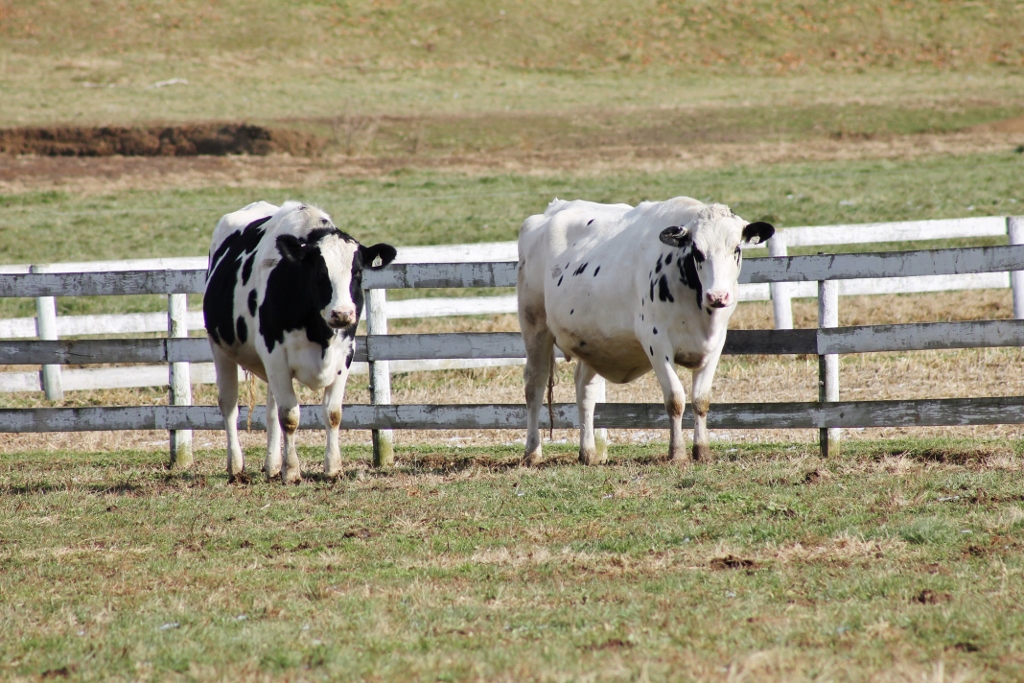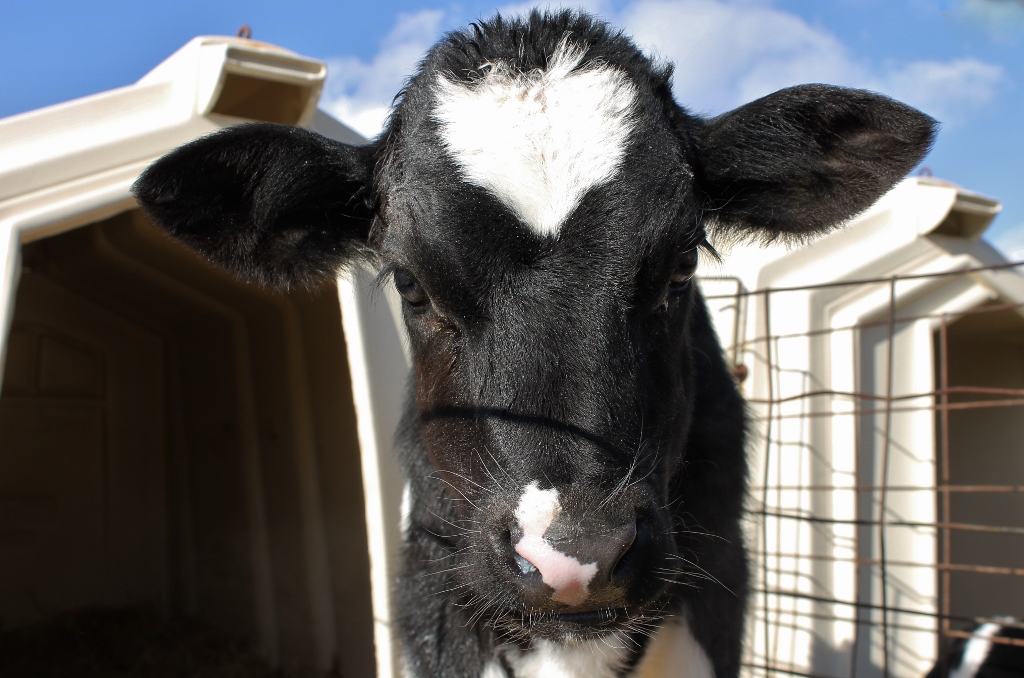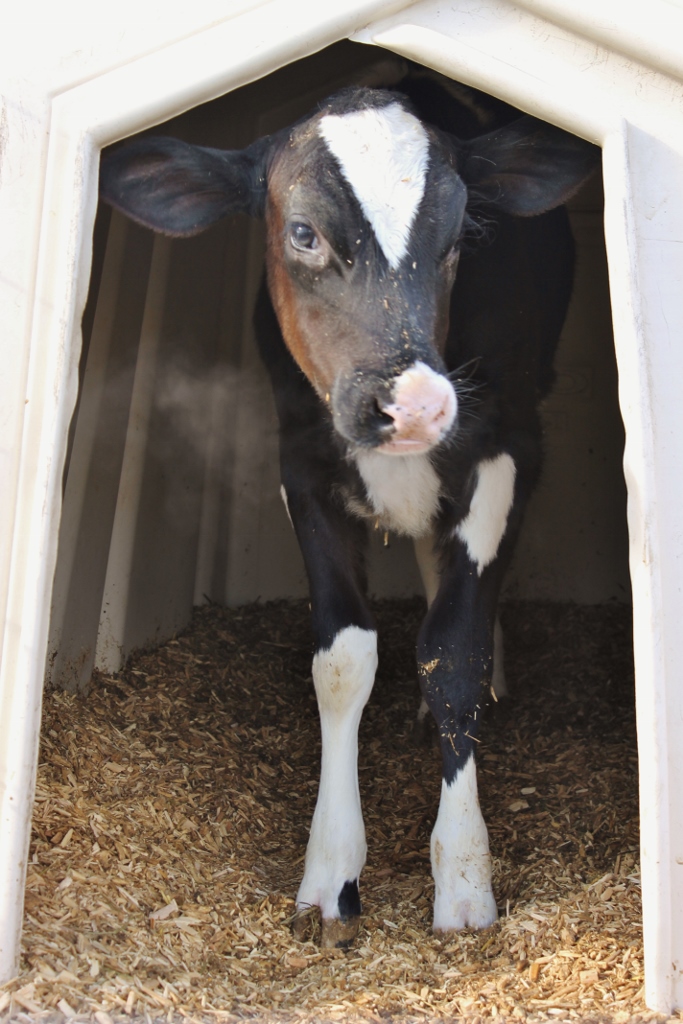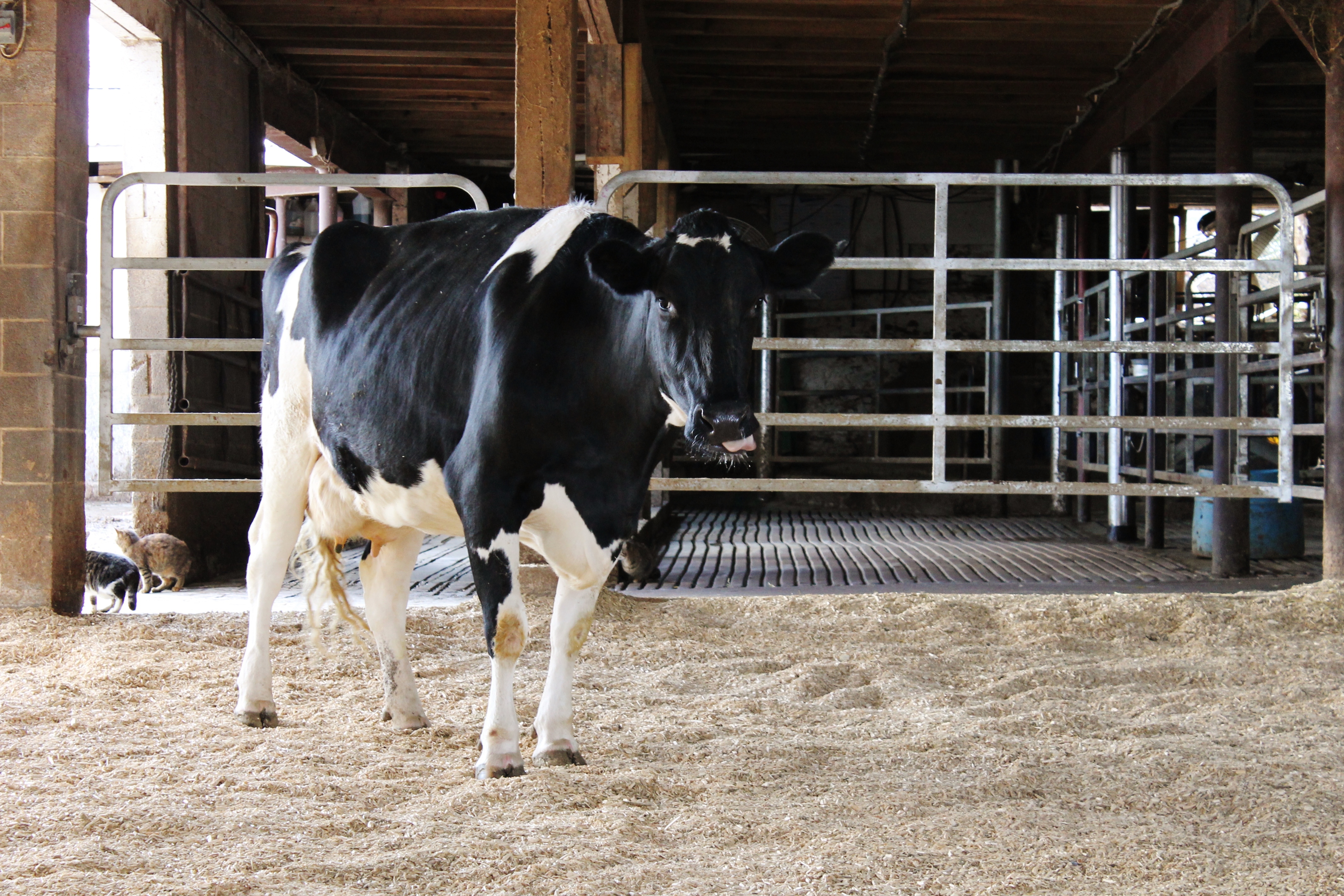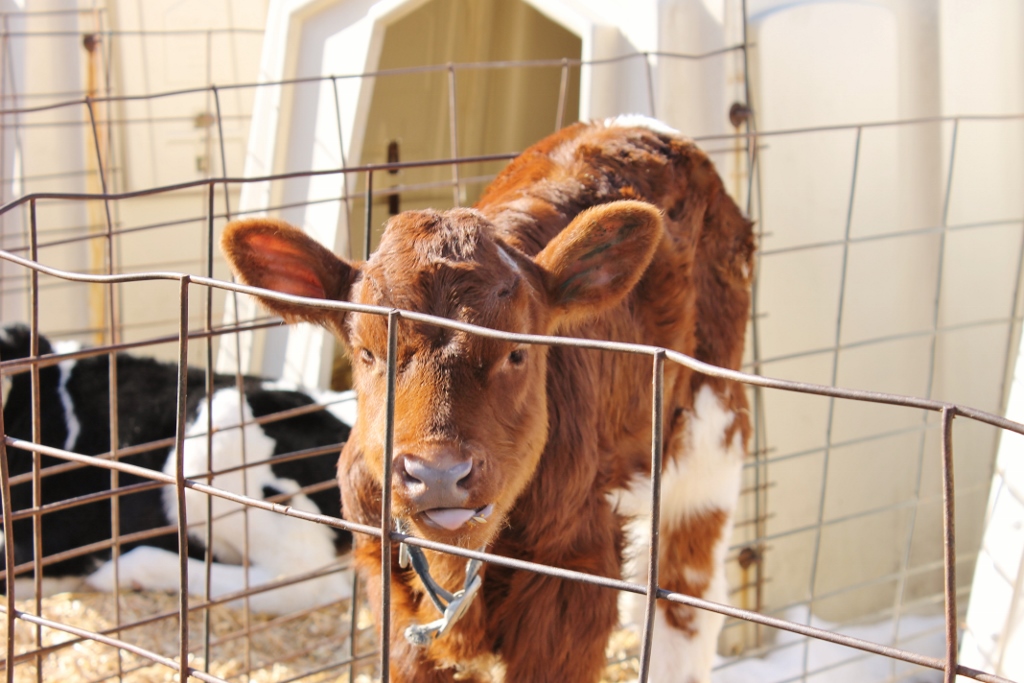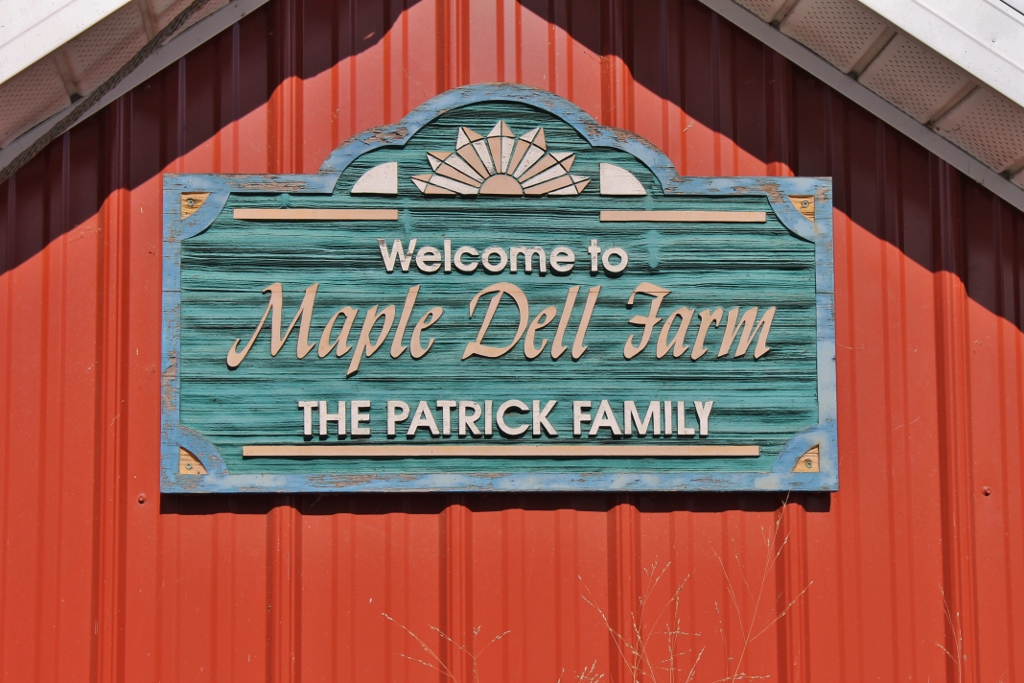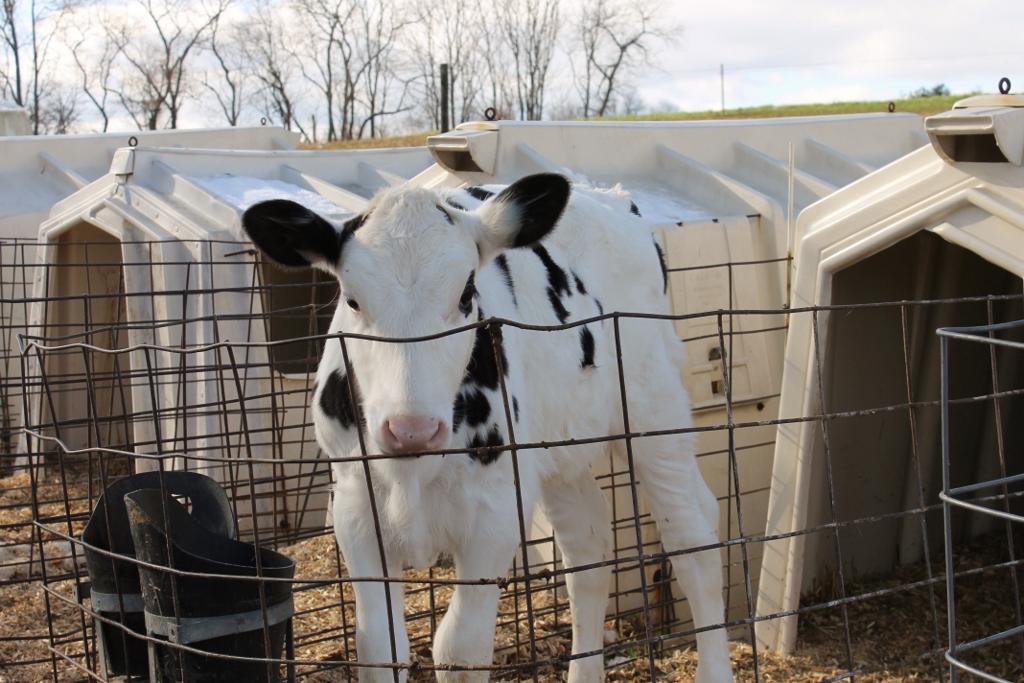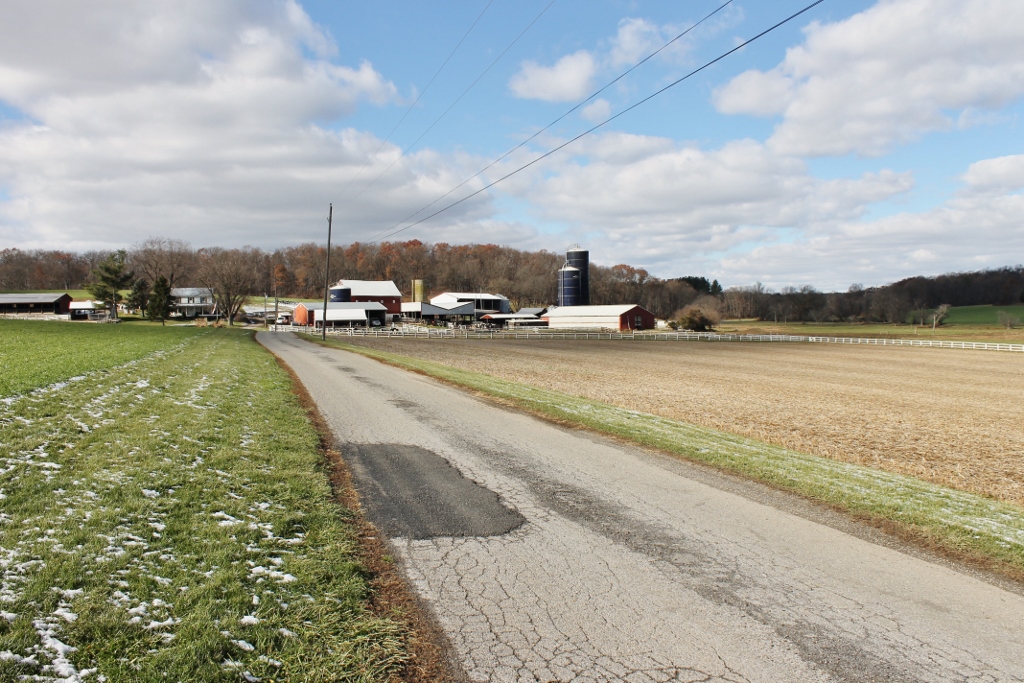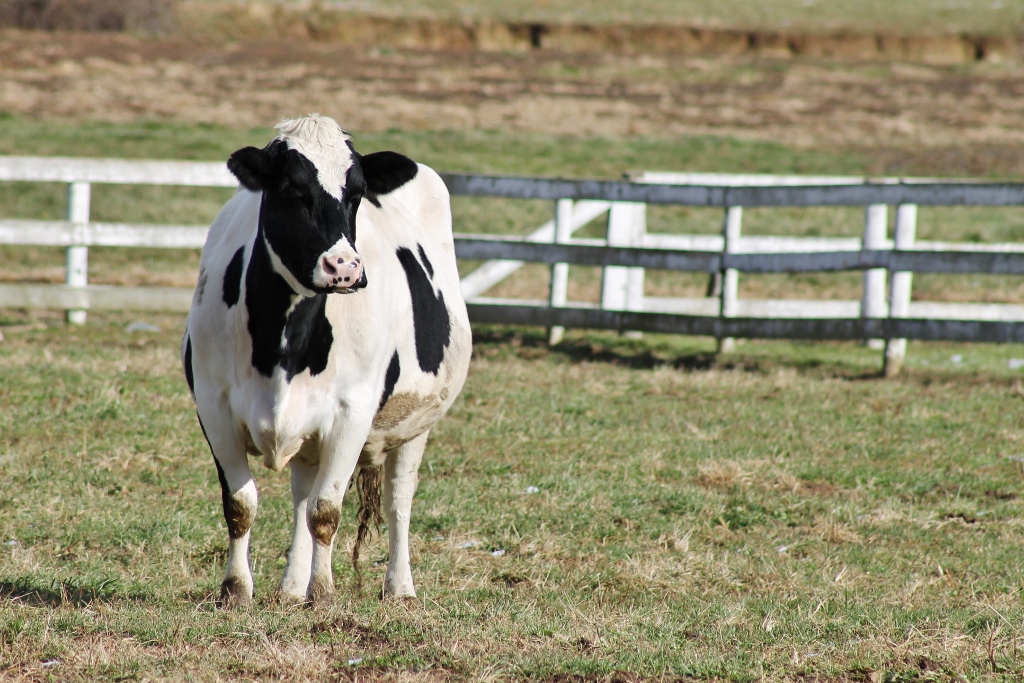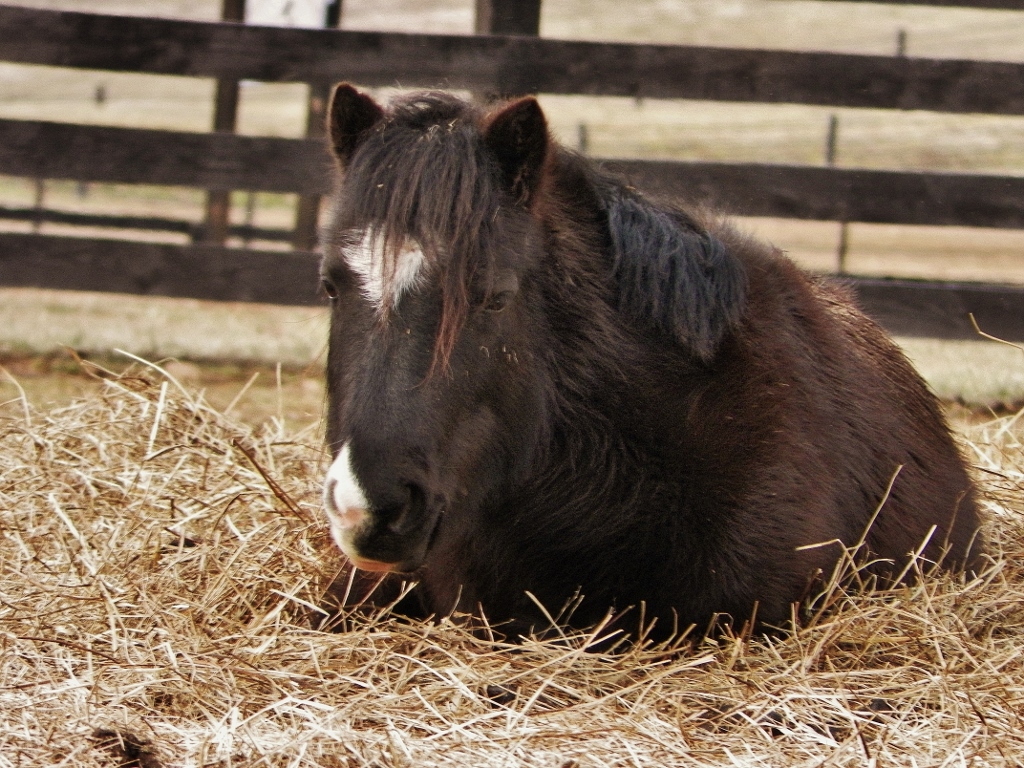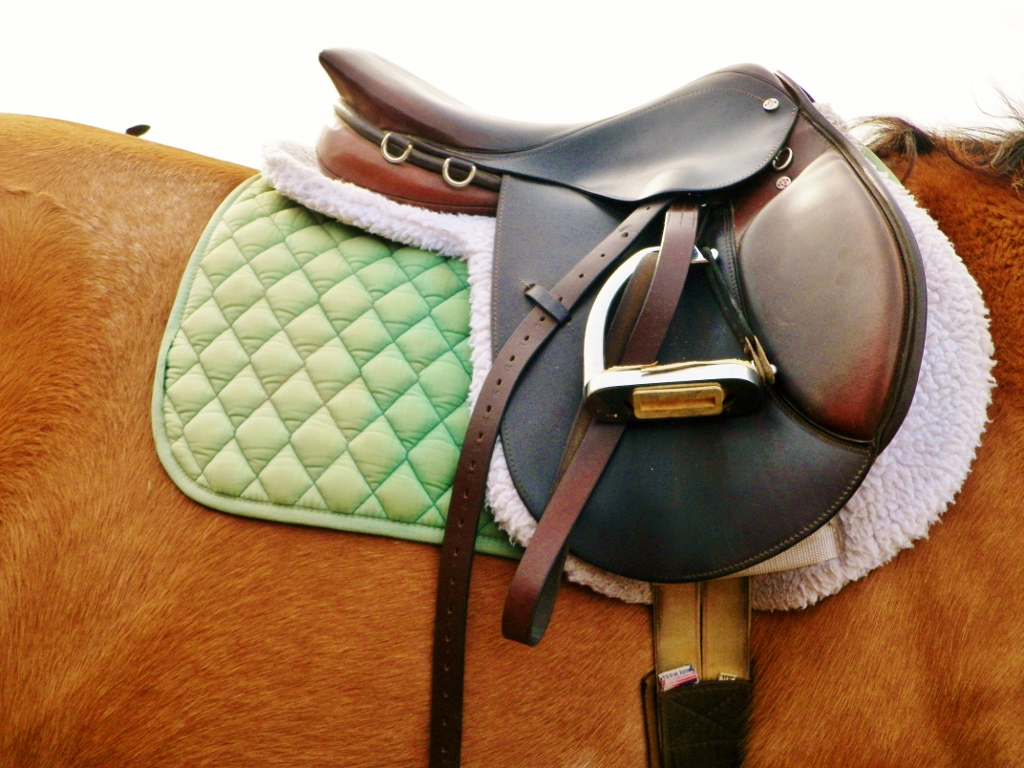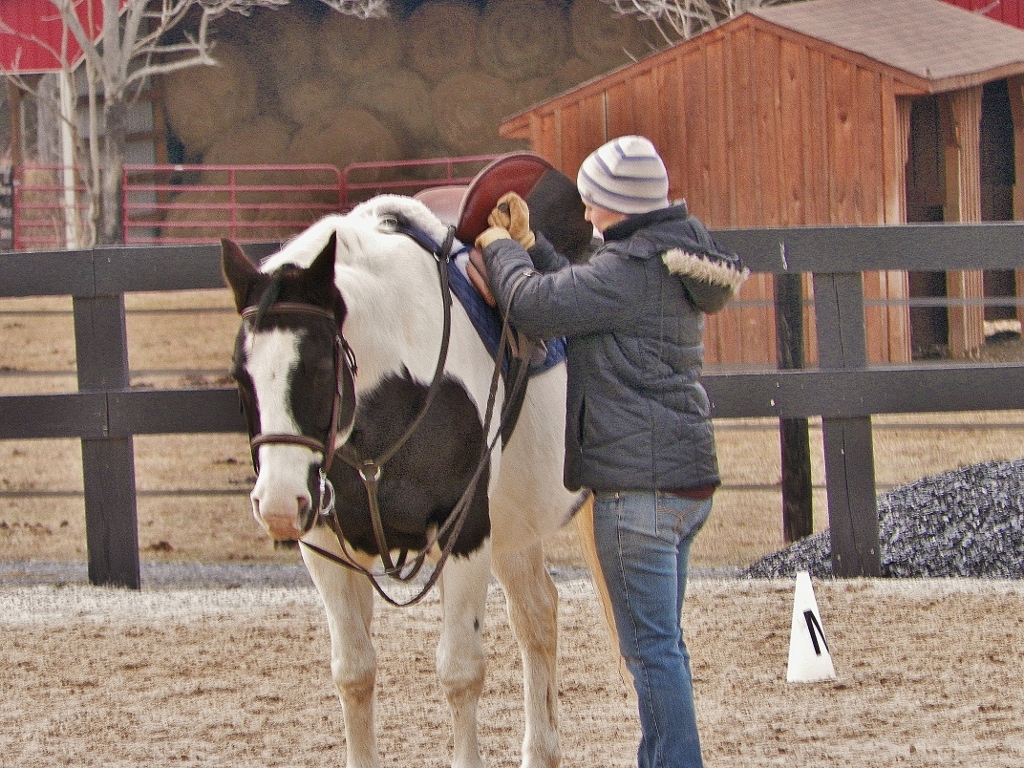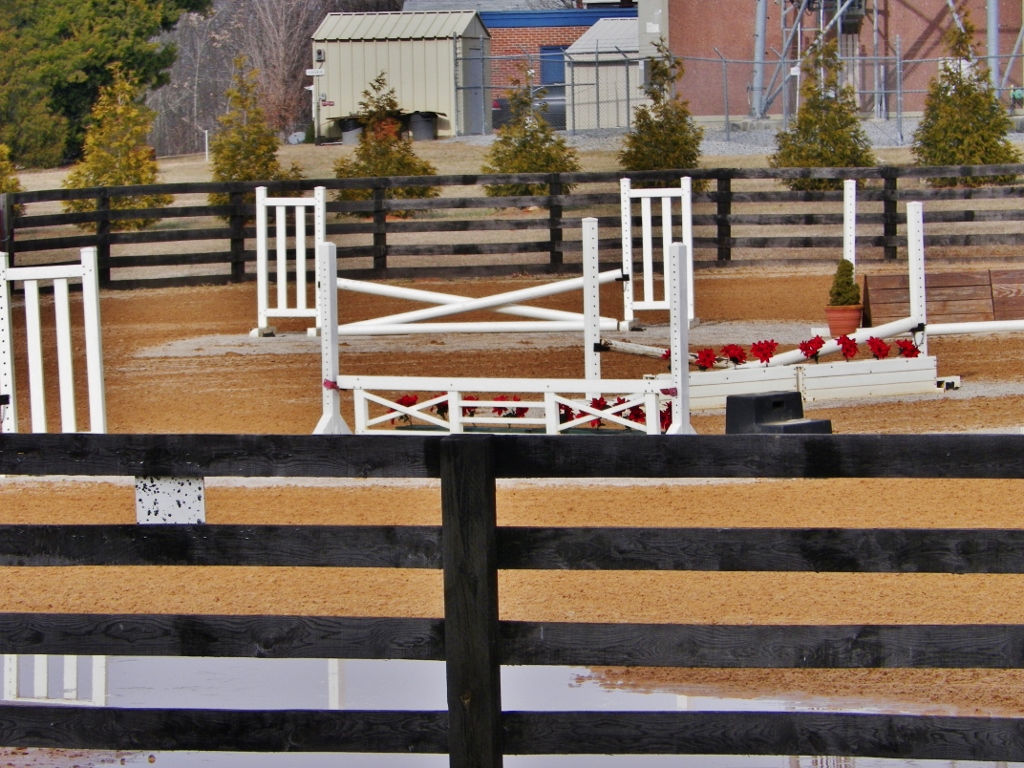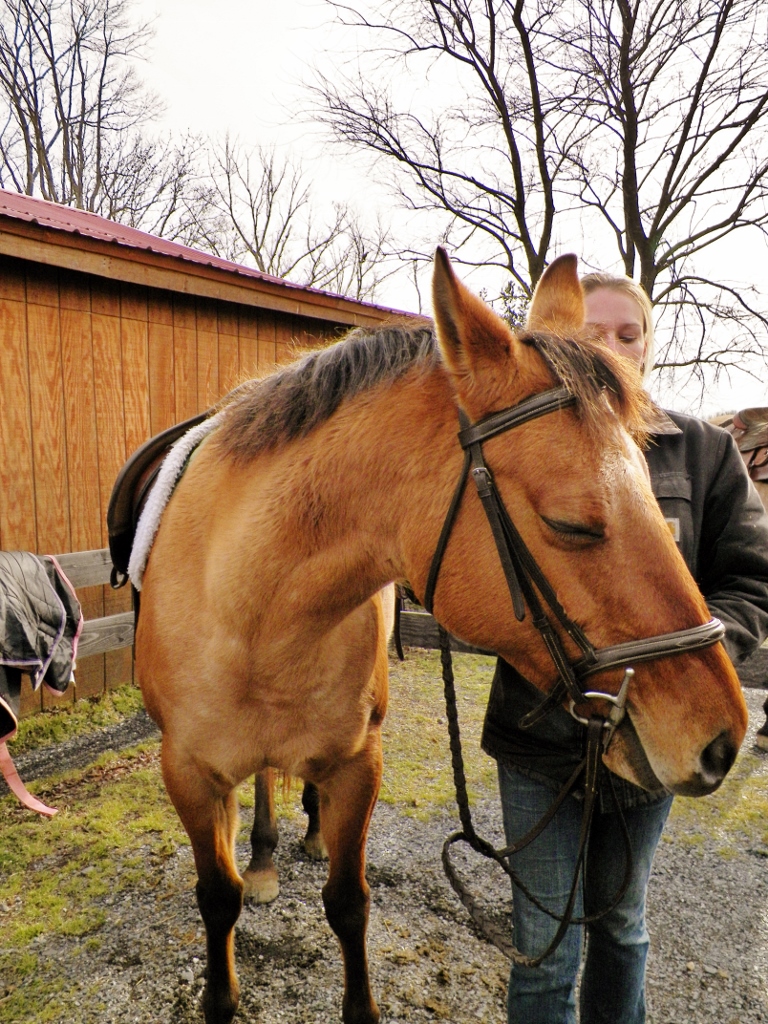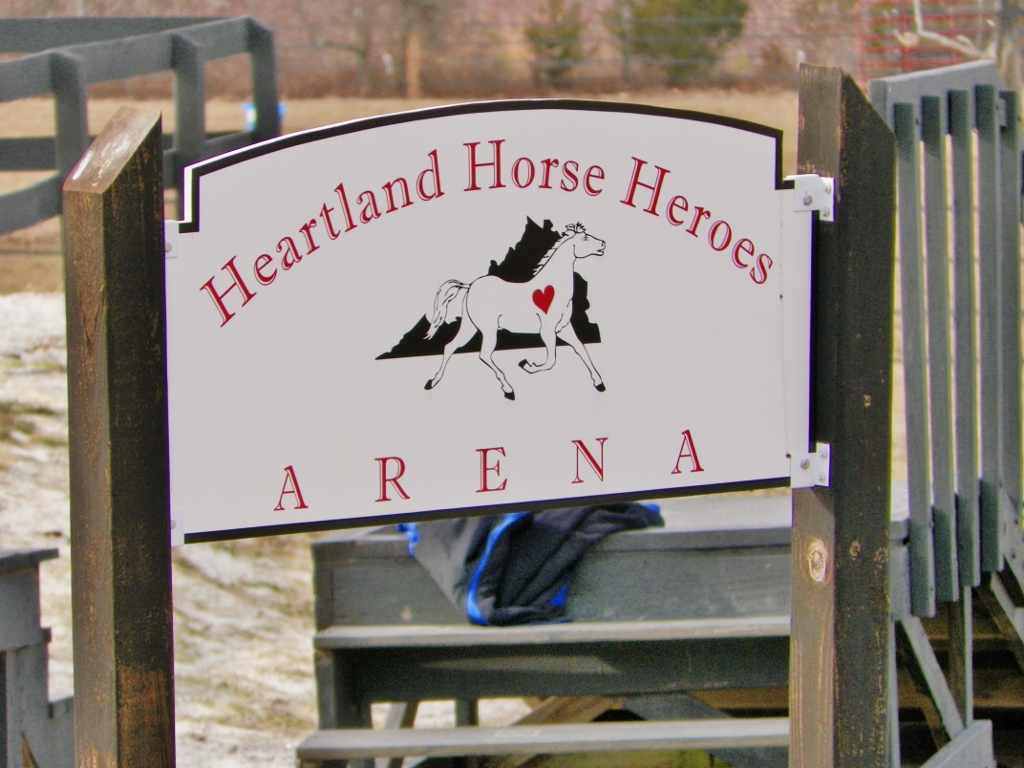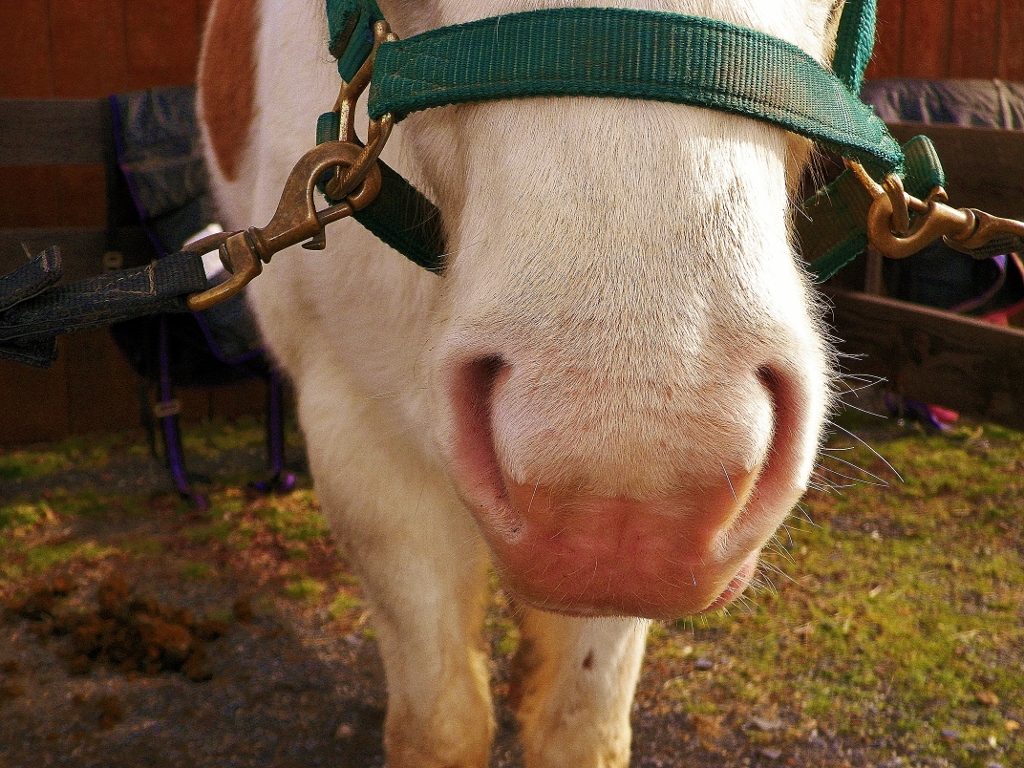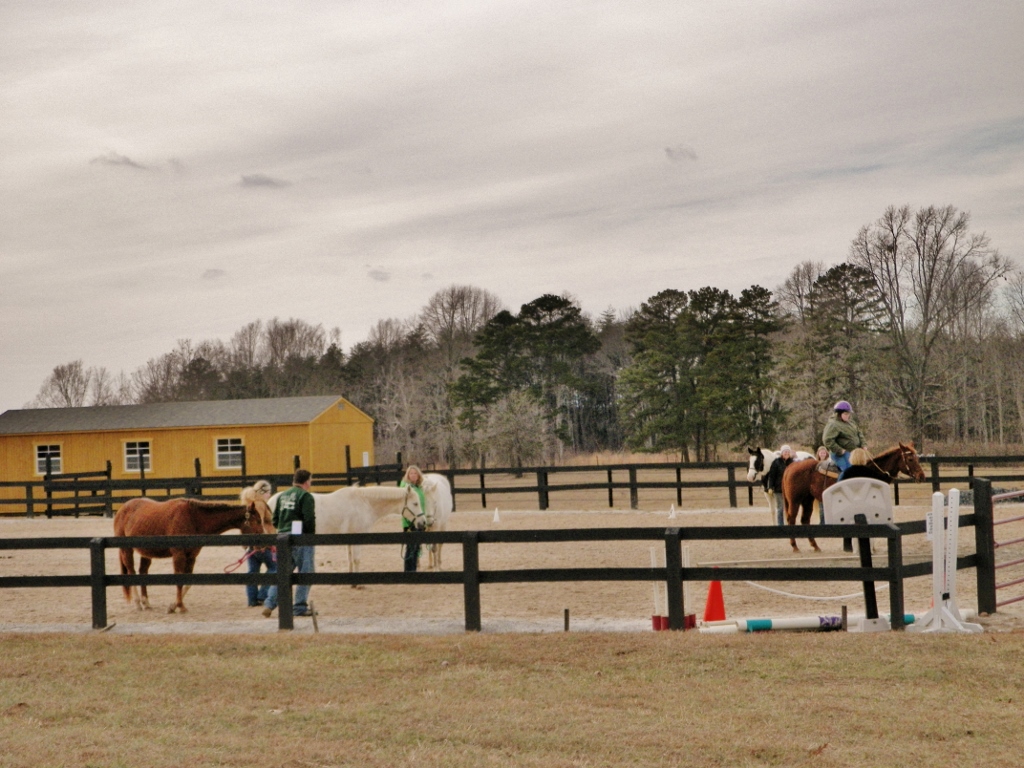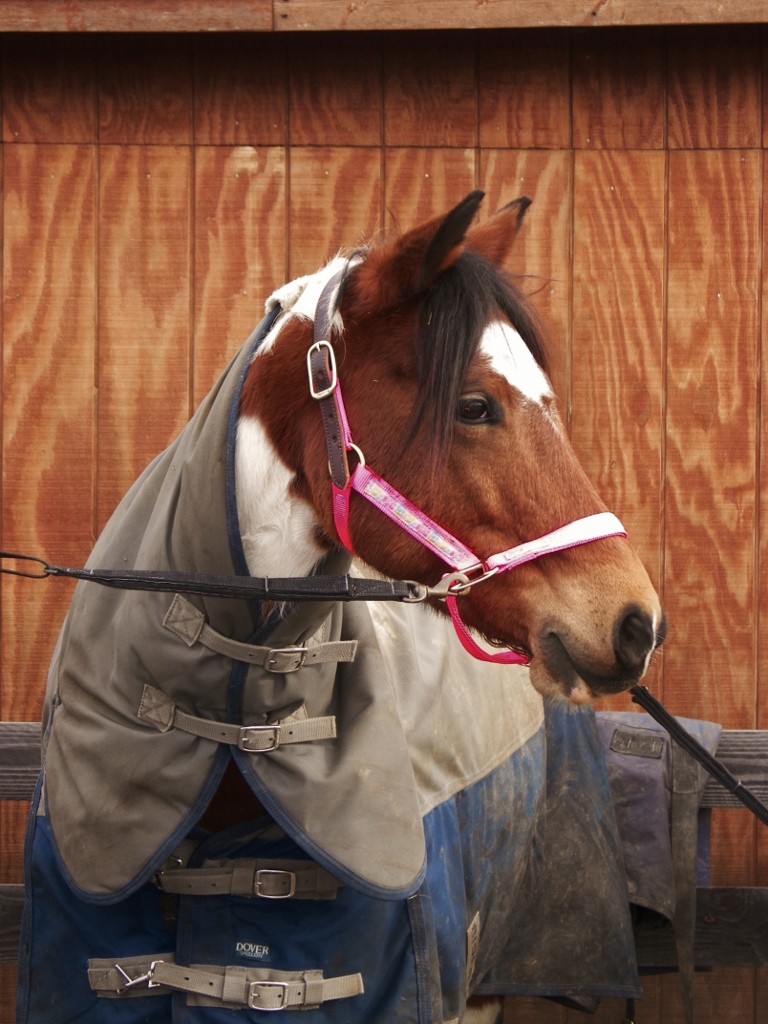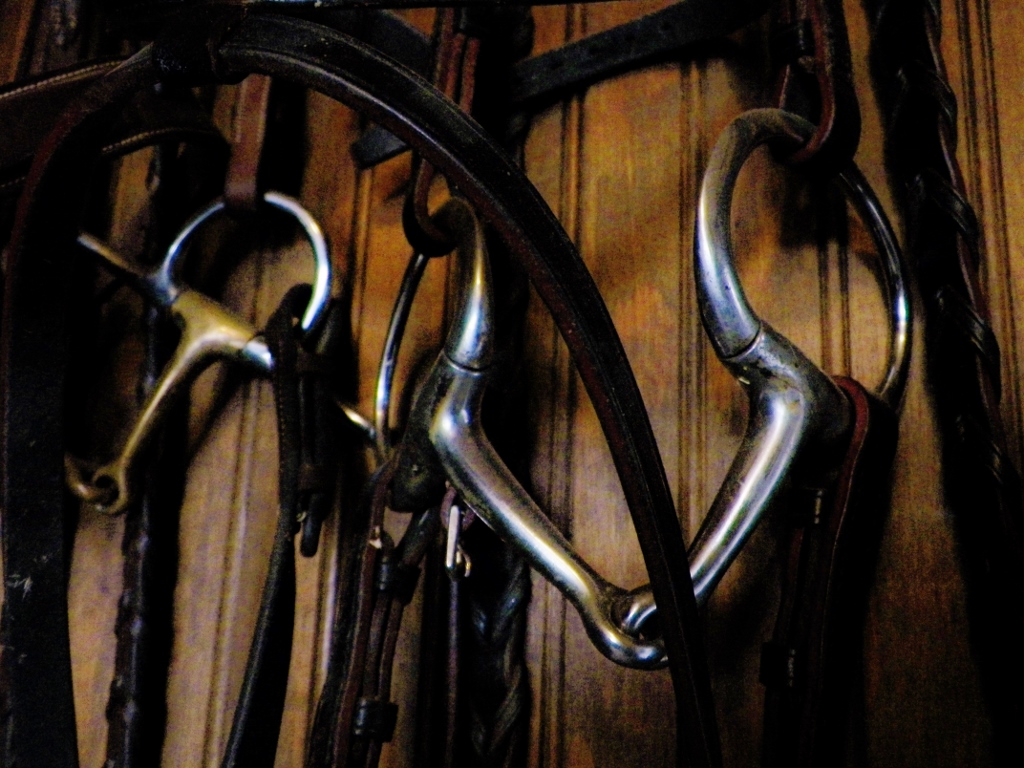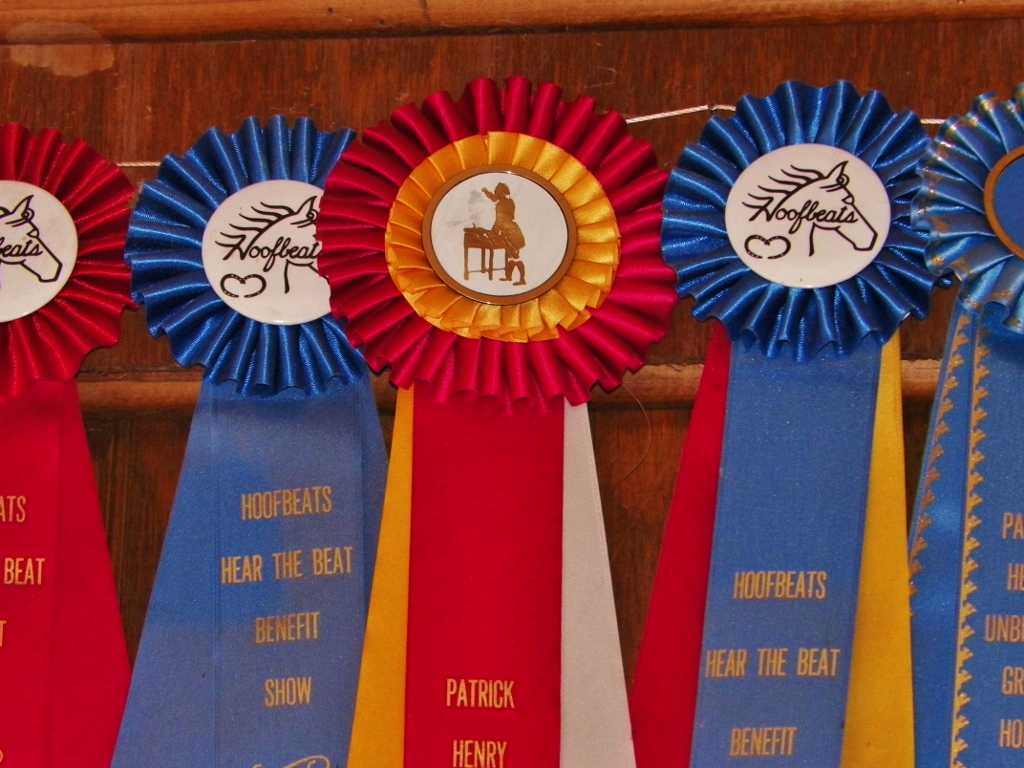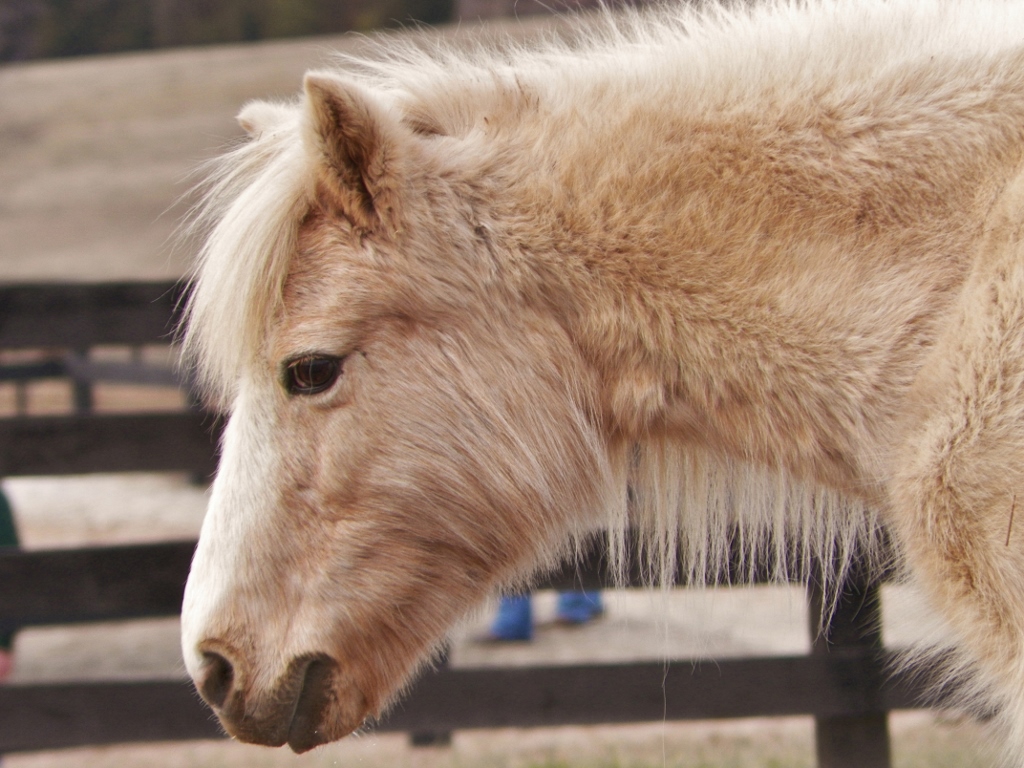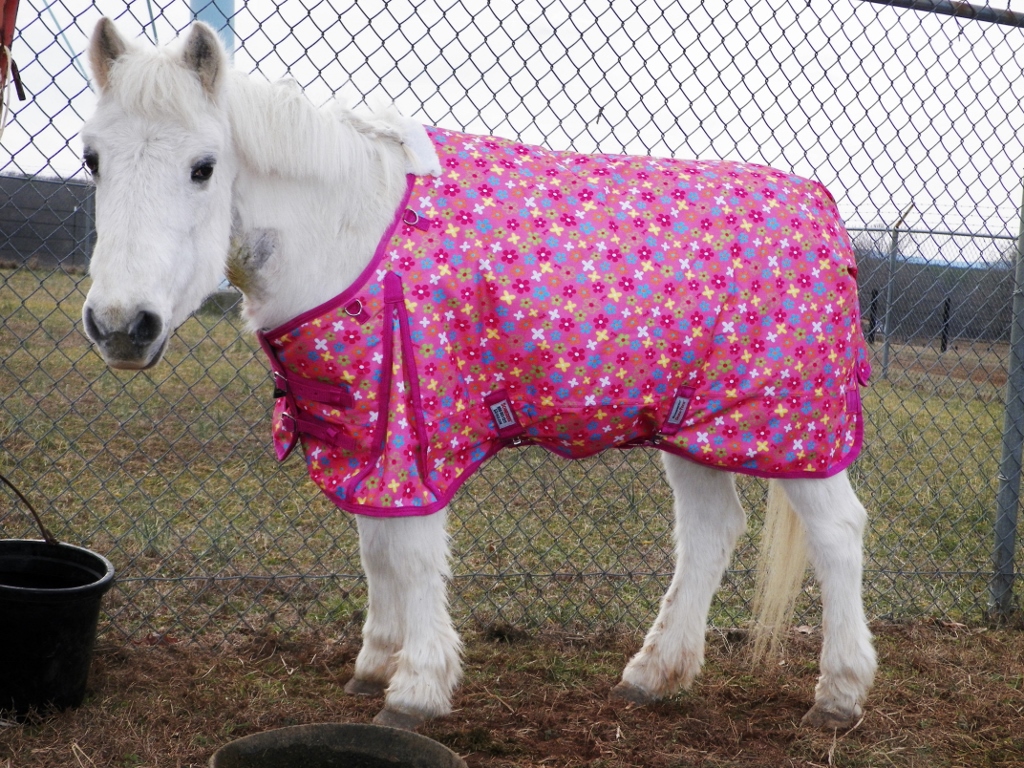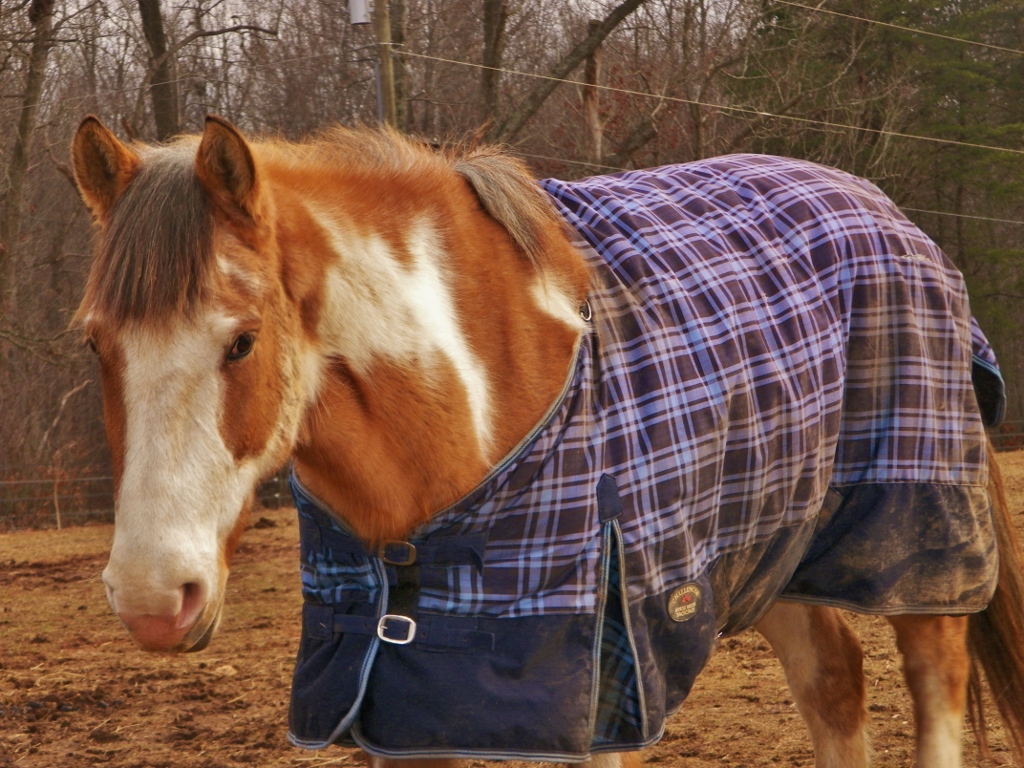Introduction: We normally feature Virginia farms, but rules can be broken! I recently visited my hometown and met with the Patrick family at their nearby farm. I also have a bit of a personal connection to their story—Caitlin and Derek Patrick were in the same 4-H program that I was, and I saw the family at the Howard County Fair each year where we all exhibited our livestock.–Laura Siegle
The 160-cow dairy, a fixture in the Howard County farm landscape, is one of the last of its kind in Howard County, Maryland. Nonetheless, a typical day on the farm for the Patrick family at Maple Dell is much like life on any of the many family-run dairies scattered across the state. The cows walk to the milking parlor twice each day, and each cow’s udder is cleaned and milked over the course of several minutes.
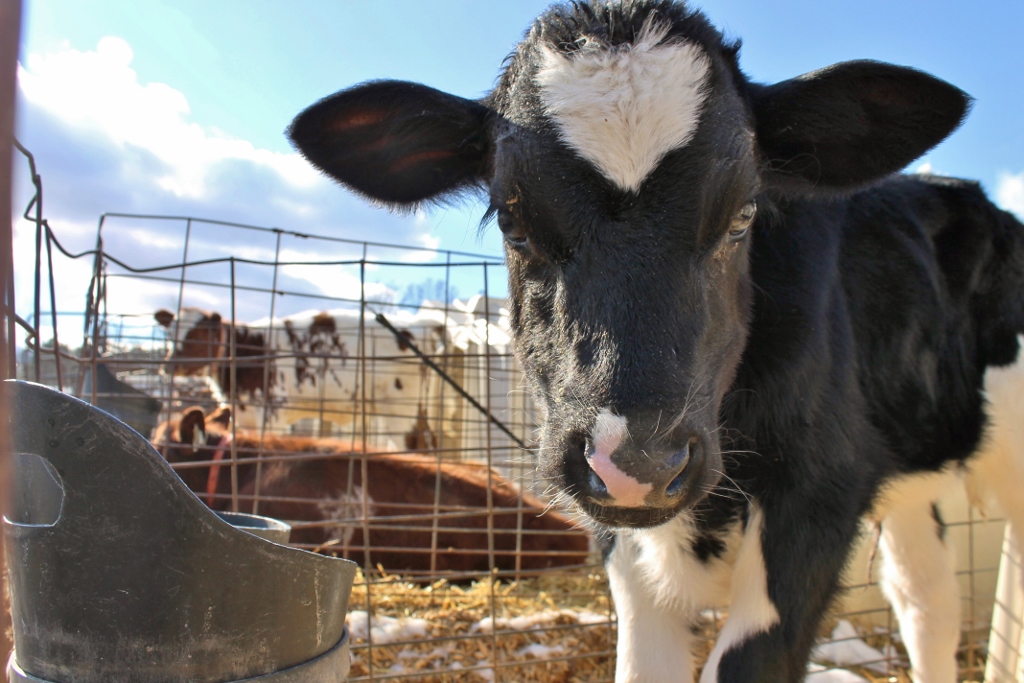
Unlike cows, who eat a mixed ration, calves on dairies like Maple Dell drink milk or milk replacer and are slowly transitioned to a diet of “calf starter” and hay as they grow so that they can develop healthy rumens.
In between trips to the parlor and judicious equipment cleanup after each milking, there is no shortage of chores. Each day, the family must blend a ration consisting of farm-grown silage, hay, grain, and minerals and deliver it to the barns. This dairy ration, calculated with precision according to the needs of the cows and the nutrient makeup of each ingredient, consists largely of forages like hay and silage to keep each cow’s digestive tract and rumen microbes healthy.
Manure is cleaned out of the barn regularly to create a clean, comfortable environment for the milking herd. In fact, in one barn, the cows have free access to enter and leave a set of “free stalls” bedded deeply with sand. In another barn, the “pack barn,” cows can lie down as they please on a thick layer of shavings. The Patrick family knows that good housing that enhances “cow comfort,” as the industry calls it, leads to happy, healthy, and productive cows.
Like most dairies, the Patrick family raises their calves in hutches that provide shelter and enable individualized feeding and monitoring of each animal. Heifer calves which have been weaned live together as they grow to breeding and calving age. Aside from caring for the animals, the family also must manage the crops they grow which include corn, soybeans, barley, wheat, triticale, alfalfa, timothy hay, and orchard grass hay.
Maple Dell certainly looks a typical dairy in its day-to-day functions, but its tradition of exhibiting top-notch cattle and supporting the Howard County 4-H program is rather extraordinary. Although most of the herd consists of Holsteins, one of the most common dairy breeds, one third of the cattle are red-and-white Ayrshires. The family exhibits both breeds. In fact, the Patrick family has been showing cattle for the past seventy years ever since David and James Patrick began taking their Ayrshires to fairs. Most recently, Maple Dell cattle have gone locally to the Howard County Fair, the Maryland Spring Show, and the Maryland State Fair. At the State Fair, the family has brought the Holstein Senior Best Three Females for two years in a row.
The Patricks have also traveled to the prestigious All-American Dairy Show and the World Dairy Expo. Their cattle have undergone the “classification” process which objectively appraises animals for a variety of traits on a 1-100 point scale. The outstanding EX-95 classification that has been assigned to three Holsteins and one Ayrshire bred by Maple Dell is a testament to the quality of the cattle the family produces.
It would be remiss to look at the farm’s breeding and showing achievements without acknowledging its contribution to the county’s 4-H program. The 4-H program in Howard County has long been a standout opportunity for youth to gain skills ranging from robotics to livestock judging. Farms in the county have dwindled and dairy farms are far more rare, but thanks to the Patrick family, youth with or without farming backgrounds have the opportunity to lease dairy heifers and exhibit them in the Howard County Fair, an event where the 4-H program shines and youth showcase their skills and projects over the course of a week in front of thousands of attendees from the community.
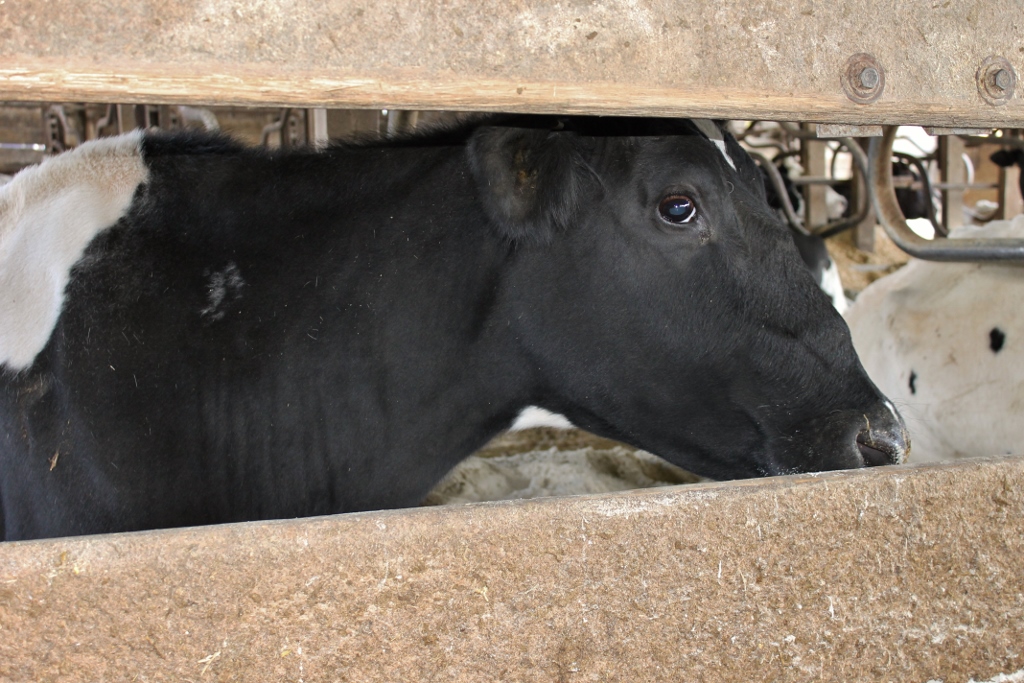
This cow and her herd mates are lying down on a bed of sand. Cows can enter and exit these bedded “free stalls” as they please to go eat, drink, or socialize.
For many years the Patricks have organized a dairy club education and showing program. Youth who join can keep their leased heifer at the farm if they do not have their own facilities. Twenty or thirty heifers from Maple Dell are leased out to children through this program each year. 4-H members who lease a heifer must keep detailed “project records” on their animal, including notes on care and reports on expenditures, and preparing the heifers for the fair is certainly is nothing short of a project. Heifers must first learn to be handled and walk quietly when led. They must also be brushed, bathed, and clipped, among other tasks. The process instills responsibility, confidence, and character in youth who participate in the process from start to finish.
The Patrick family is deeply rooted in their passion for excelling in their business, serving the industry, and engaging youth in agricultural production. This tradition was built by the dedication of parents and grandparents who had high expectations for their cattle and appreciated the value of 4-H programs, and today, the Patrick children and grandchildren carry on the tradition. Walk through the Howard County Fair in August, and you just might spot a barn aisle full of Maple Dell calves napping in the straw after a bath and waiting on their turn in the show ring.
Additional Resources for Readers:
Article about the 4-H leasing program at Maple Dell here
Article about Ayrshires at Maple Dell here
Dairy cattle resource from Virginia Cooperative Extension here
University of Maryland 4-H Program here

